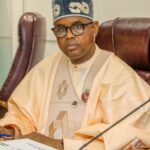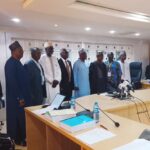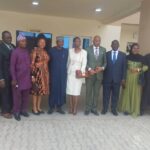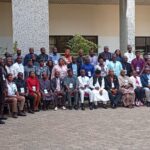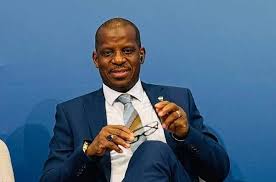The Global South Media has been urged to be systematic in ensuring the transparency of developmental infrastructure across the continent through professional reportage.
It should ask questions such as the transparency of the projects, its capacity to create jobs for local people and if it helps Africa speak with one voice in global forums.
Malam Ali Muhammad Ali, Managing Director and Chief Executive Officer of the News Agency of Nigeria (NAN), disclosed this on Friday at the Global South Media Think Tank Forum in Johannesburg, South Africa.
Ali spoke on the topic: China-Africa Commitment to Global Governance Reforms.
‘’First, let me say that the partnership between China and Africa is not just about roads or ports. It is also about reshaping the way the world is governed.
‘’Over the past decade, China has pledged to support a more inclusive international system—one where African voice is heard, not just echoed.
‘’One concrete example is the Forum on China‑Africa Cooperation, or FOCAC. At the 2022 summit in Dakar, China announced a $30 billion fund for African infrastructure and a commitment to increase Africa’s representation in international financial institutions.
‘’This means more African seats at the table of the Asian Infrastructure Investment Bank and the New Development Bank, giving our continent a stronger say in how development loans are decided,’’ he said.
Ali said that the sustainability and success of this infrastructure by China on the continent would depend largely on reforms and rules that govern trade and investment.
‘’China has signed agreements that include “transparent procurement” clauses and “environmental standards” that are now being used as a model for other multilateral projects. In practice, this helps African nations avoid debt traps and ensures that projects benefit local communities.
‘’Now, let me turn to Nigeria, because our own reforms show how these global commitments can take root. Earlier this year, Nigeria launched a digital economy strategy that aligns with China’s “Digital Silk Road.”
‘’The government is working with Chinese tech firms to expand broadband in rural areas, while also pushing for data‑privacy laws that protect citizens—an important step toward a fairer digital order.
‘’Nigeria is also seeking a more prominent role in the United Nations. We have campaigned for a non‑permanent seat on the UN Security Council, arguing that the council should reflect the realities of the Global South.
‘’China has publicly backed Nigeria’s bid, signalling that the continent’s peace‑keeping and security contributions deserve recognition. These actions may seem small, but they add up.
‘’When China backs African candidates for leadership positions, when it funds infrastructure that respects local laws, and when it partners with countries like Nigeria on digital reforms, the whole system begins to shift.’’
The NAN chief executive, therefore, urged the media and thinkers of the Global South to hold both China and their governments accountable by putting the interest of stakeholders in their narratives in order to increase openness and inclusivity.
Ali said cautioned the media to remember that global governance reform was already taking root in the ‘’roads we build, the seats we occupy, and the laws we write’’.
‘’China‑Africa cooperation can be a catalyst for that change—if we keep the conversation alive and the pressure on.’’(NAN)
Edited by Ismail Abdulaziz



